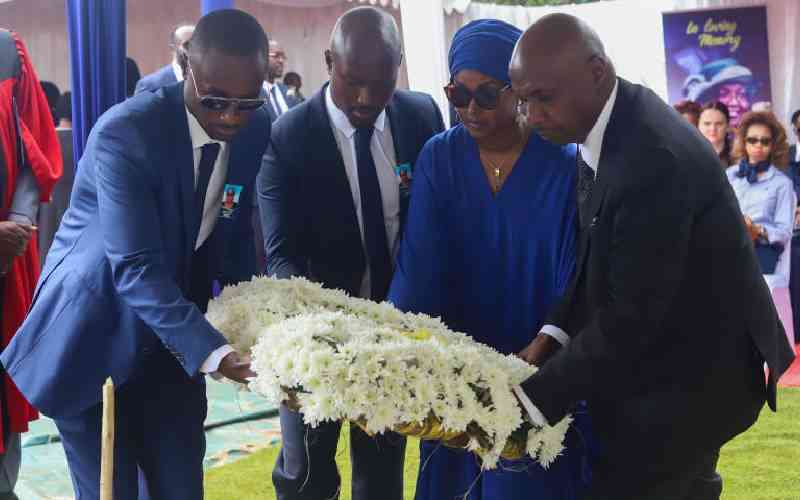Kenya expects 20 companies to start investing about Sh8 billion ($80 million) immediately in the African nation’s textiles industry after the renewal of a deal offering access to the US market, its industrialisation minister said.
President Barack Obama signed the Africa Growth and Opportunity Act (Agoa) this week, renewing a deal allowing Sub-Saharan African countries to export thousands of products to the United States, without tariffs or quotas, for a further 10 years.
The companies had been awaiting the Agoa extension before moving ahead with their investments, Industrialisation and Enterprise Minister Adan Mohamed told Reuters.The current deal would have expired on September 30 this year.
Free markets
“The biggest opportunity that we have in this country is accessing the US market,” he said in an interview at his ministry office. The Act offers tangible incentives for African countries to continue their efforts to open their economies and build free markets.
Kenya is the leading exporter of garments under Agoa in Sub-Saharan Africa. Mohamed said the industry earns about $400 million (Sh39b) a year exporting garments Kenyan firms stitch together using imported fabrics.
Kenya needs to boost exports to rein in a gaping current account deficit and ease pressure on its currency, which has been hit by global dollar strength and slide in foreign exchange earnings from tourism after a spate of Islamist attacks. Half of the 20 firms that are ready to invest are already operating in Kenya and want to expand, Mohamed said.
“The other half are companies that are coming from Sri Lanka, from Bangladesh, from India that are coming here looking at opportunities in this place,” he said.
“We want to get to a billion (dollars in export earnings) in the next two years,” he said. “By the time Agoa finishes, before it is renewed (again), we would like to do $10 billion.”
Mohamed said the main challenge facing the textile industry was staying competitive on labour costs. Labour and fabric import costs together make up 80 per cent of firms’ operating costs. “That is my biggest headache at the moment,” he said.
The minimum wage in Kenya is about $135 a month compared with $35-$45 in Bangladesh, a garments exporting powerhouse, and $65 in Lesotho, the number two exporter of textiles under the Agoa facility, executives in the textile industry said.
“I don’t have a problem with the cost of labour being high but the productivity must match that high cost,” he said, adding improvements in training, working closely with unions over pay and investing in more efficient machinery would all help.
 The Standard Group Plc is a
multi-media organization with investments in media platforms spanning newspaper
print operations, television, radio broadcasting, digital and online services. The
Standard Group is recognized as a leading multi-media house in Kenya with a key
influence in matters of national and international interest.
The Standard Group Plc is a
multi-media organization with investments in media platforms spanning newspaper
print operations, television, radio broadcasting, digital and online services. The
Standard Group is recognized as a leading multi-media house in Kenya with a key
influence in matters of national and international interest.
 The Standard Group Plc is a
multi-media organization with investments in media platforms spanning newspaper
print operations, television, radio broadcasting, digital and online services. The
Standard Group is recognized as a leading multi-media house in Kenya with a key
influence in matters of national and international interest.
The Standard Group Plc is a
multi-media organization with investments in media platforms spanning newspaper
print operations, television, radio broadcasting, digital and online services. The
Standard Group is recognized as a leading multi-media house in Kenya with a key
influence in matters of national and international interest.





